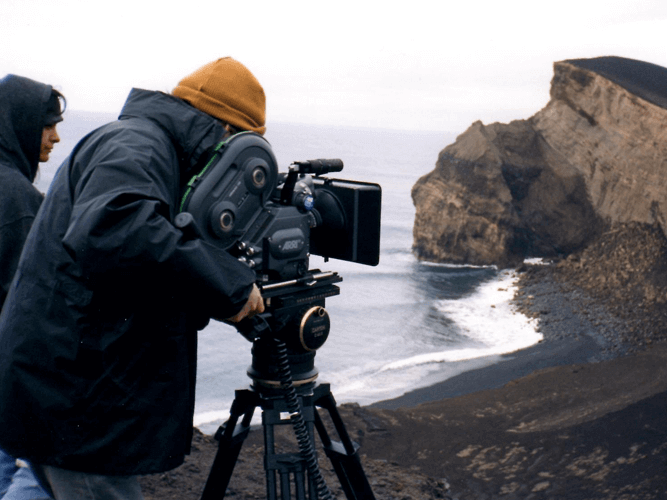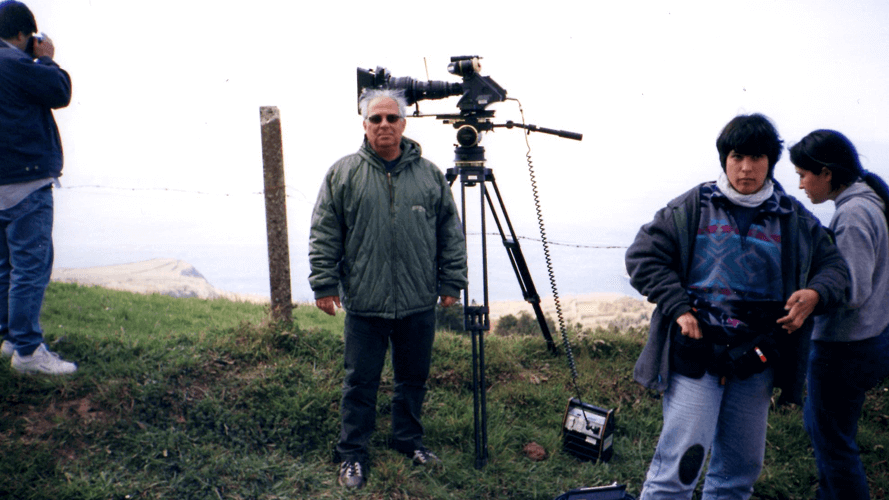
Expo 2000 Hannover
2000
director | Rui Simões

Rui Simões got invited to direct a short film of about 6 minutes, to display at Portugal's Pavillion at the Universal Exhibition of Hannover 2000, about the general subject:"Human Beings - Technical Nature", Filmes do Tejo production. The film played on "loop" in a super panoramic screen of 16m x 2.67m in the interior or Portugal's Pavillion, and it is calculated that, by the end of the Expo, 3 million people have seen it. The movie works as a big window with a view of the country: the land, the people, the territory marks and its diversity of sea and land sights, but also the digital Portugal of education and training, and the contribution and collaboration in an international project of research, such as the glass chair and the robots for marine's research, present in the pavillion. The film incorporates aereal images from all over the country, adapted to this specific format, and dismisses words, recurring solely to visual and sound language. The soundtrack is by Manuel Faria - professional erudit musician made famous by his career with the group Trovante. The project designer for the Portuguese Pavillion was the Belgium Johann Schelfout, that had worked with Portugal's Pavillion before in Expo 98.





